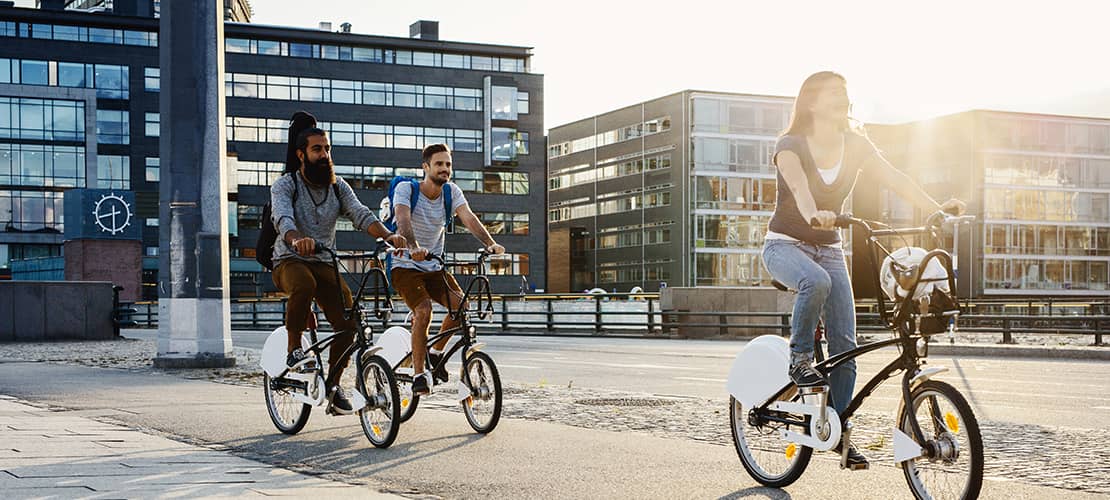The changes brought about by the COVID-19 pandemic served as a wake-up call for many people on how important it is to take care of one’s health and well-being. More than its impacts on the way people live and work, this global health situation became a reminder of how communities play an important role in prioritizing the health and safety of families and individuals.
According to the Centers for Disease Control and Prevention, a healthy community is a prepared community. The best way of preparing for potential outbreaks in the future is by ensuring that the health of the overall community. Experts say that even without the existence of health emergencies or threats, public health should be one of the main priorities of local authorities and national governments. This includes the continuous promotion of good nutrition, physical activity, and proper hygiene.
READ MORE: The Importance of Public Health in Communities
With the increased anxiety brought about by the pandemic, the way people have chosen to move has drastically changed. As public transportation became less ideal under strict social distancing and health protocols, BBC reported that individuals have returned to the most basic form of mobility: cycling or biking—leading to the “great bicycle boom of 2020.”
The momentum of the rising interest in non-motorized transport has led to a dramatic decrease in air pollution by 60%. The World Bank urged more countries to sustain the shift given its greater social benefits, pollution reduction, and better urban livability.
Pushing Forward Sustainable Transport
Apart from the increased demand, providing safer roads for bikers has been extremely challenging. High fatality rates were recorded due to the unreadiness of most cities when it comes to non-motorized vehicles. In the Philippines, cycling advocates have called for fund allocation of at least 16 million dollars from the government to build 190 miles of bike lane to protect riders.
Biking groups also challenged the use of face shields while on the road as it obscures a biker’s vision. The Institute for Climate and Sustainable Cities wants policymakers in the country to accommodate these alternative modes of transportation rather than fronting the dangers of cycling.
The pushback enabled a key collaboration with private corporations. Through their concerted efforts, the Department of Transportation has recently released a bike manual. This covers road safety, courtesy, and etiquette between cyclists, motorists, and pedestrians based on guidelines aligned with key agencies such as the Department of Public Works and Highways, Department of Interior and Local Government, Metropolitan Manila Development Authority, and the Move as One Coalition.

Benefits and Sustainability of Biking
Several benefits for individuals who adopt the lifestyle change prove to be universal especially in countries that are committed to the shift. Apart from reducing the exposure from COVID-19, cycling is good for the economy as local retailers can benefit from all biking-related sales.
With a global pandemic, the premium on keeping in shape and staying healthy has dramatically increased as well. Biking lets you engage in a low impact, adaptable exercise and proved to be a great way to lose weight as it burns approximately 400-700 calories per hour.
Sustainability is often attached to non-motorized vehicles due to a massive reduction in carbon footprint. Biking also results in a drop in air pollution, creating cleaner air and a healthier environment for all. It is also a more affordable option to move around and takes less time.
There are also very real mental health benefits to riding a bike. In the UK, most individuals have found that it is a good way to destress and clear the mind while taking in your surroundings safely. Aerobic exercises such as cycling can lead to improved cognition and memory that will boost motivation and productivity at work.
With the impressive rundown of benefits, premium green workplaces in the Philippines such as JEG Tower have provided biking racks for their occupants. This encourages employees to cycle to work to reap the many health and economic benefits. Furthermore, they have shower rooms available for use so people can freshen up before they start the day’s work.
As one of Cebu’s LEED-accredited office and commercial towers, it is committed to harnessing a healthy and less polluted environment by providing quality spaces that encourage sustainable practices while equally serving its local community.
READ MORE: The GREEN Advantage: How do green buildings contribute to pandemic resilience?
Join the sustainable shift and make your move to the best and greenest workplace in Cebu. Contact Lorenzo Martin E. Rodriguez at (+63) 917-825–6884. For leasing inquiries and more information, call us at (+63) 2-8403-5519 or send an email to info@kmcmaggroup.com.



